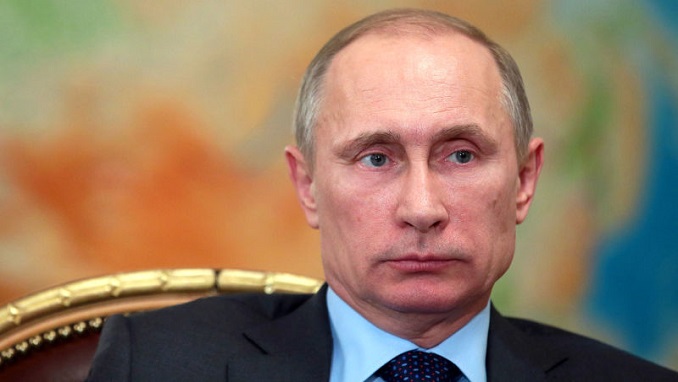The United States, The United Kingdom, and France launched strikes on Syria targeting president Bashar al-Assad’s chemical weapons facilities on Friday, further escalating a conflict with Russia to an intensity unseen since the Cold War.
Pro-Kremlin politicians blamed the United States and its allies for the rising tensions and said that the West should stay out Russia’s domestic affairs. Even opponents of the regime said that President Trump’s tweet this week telling Russia to prepare for a missile strike on its ally Syria didn’t help reduce tensions, and warned that Russian President Vladimir Putin has many ways of increasing them even more, The Washington Post reports.
In a rapid-fire series of events on Friday, Russia banned a popular messaging app, threatened to pirate U.S. goods and claimed Great Britain had orchestrated a staged chemical attack in Syria, which the West used as an excuse for the assault.
On Saturday, Russian President Vladimir Putin denounced the Syria strike as an “act of aggression” that will exacerbate humanitarian catastrophe in the country. In a statement issued by the Kremlin, the Russian leader said Moscow is calling an emergency meeting of the United Nations’ Security Council over the event.
“From the Kremlin’s point of view, they’re the good guys right now,” said Konstantin Gaaze, a liberal political analyst. “Despite the rather intense pressure from abroad, the Kremlin, for now, is controlling the situation and not allowing full anti-Western hysteria to take hold.”
But the way Friday unfolded showed how Putin is girding for an escalating battle on multiple fronts — from tamping down the opposition at home to engaging in an expanding economic — and potentially even military — conflict abroad, the Post writes.
“If we keep getting these kinds of signals from Washington, then all of this will keep moving closer and closer toward hell,” Andrei Klimov, deputy chairman of the foreign affairs committee of the upper house of parliament, said in an interview. “The Russian Federation has long tried not to react harshly or strongly to these attacks essentially in our direction.”
At the State Duma, members of the lower house of parliament were detailing proposed new legislation to retaliate against U.S. sanctions. While the sanctions announced by the Treasury Department in Washington this month target certain people and companies close to the Kremlin, the Russian lawmakers’ proposed response was much broader. They said Russia could curb U.S. food, drug, medical and services imports, and even pirate U.S. goods without regard for intellectual property rights.
“We’ll hit the Americans in the gut,” Mikhail Emelyanov, first deputy chairman of the Duma’s legislative committee, told Interfax. “The successes and, especially, the domination of the Anglo-Saxon, Western world is grounded in intellectual property rights, and we will strike a blow against these rights.”
The Kremlin stopped short of endorsing the specifics of the legislation, and some analysts said they expect the measure to be softened in its final version. But the move showed that Moscow was looking for creative ways to hit back against U.S. sanctions, given Russia’s relative economic weakness compared to the United States.












